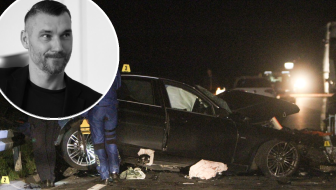The strategy for Croatia's energy development is good, but politics should be blamed for the fact that nothing has been implemented from the strategy in recent years, Deputy Prime Minister and Economy Minister Radimir Cacic said at a news briefing in Zagreb on Tuesday.
The current government should triple investments in this sector next year and carry out energy projects estimated at EUR 1.5 billion, which includes a thermal power plant at Plomin, Istria, and a hydro power plant on the River Ombla near Dubrovnik, Minister Cacic said.
The government is soon to decide on the Plomin and Ombla projects. We have already lost several months, and each month means big money, Cacic told reporters after attending the 4th Energy Arena forum, organised by the Infoarena Group and the European Bank for Reconstruction and Development (EBRD).
Preparatory work on the Plomin 3 power plant is estimated at 100 million euros. Here we have a clearly defined project and a wide range of partners who are willing to invest and the government will have no costs. Furthermore, 900 million kuna for the Ombla project has been set aside for two years, whereby we are paying for the reservation of that amount, because the previous government was unable to use the funds provided by the EBRD, Cacic said.
The minister went on to say that the two projects had two main tasks: to abide by all ecological regulations with the aim of protecting the country and its citizens and to create jobs and ensure wages.
The projected investments in the energy sector will directly influence the GDP by one percent, he added.
As for studies on the impact of the two projects on the environment, Cacic said that not all studies were the same, as there were professionally elaborated studies and also studies made free of charge. "Whenever something is free of charge, I find it very suspicious. There cannot be 'a green study', free of charge, for an HRK 900 million, it indicates that either nothing is well done or someone's interest is at stake," he said.
Cacic said that there was also a great interest in building thermal power plants at Vukovar, Slavonski Brod and Obrovac.
Under the strategy, Croatia is expected to invest 15 billion euros into the energy sector by 2020, which means that in the next seven years, between 1.5 and 2 billion euros should be invested annually, according to the minister.
In 2011, only one third of the planned investments was made, and by the end of this year we will have invested only a half of the planned 1.6 billion euros, with huge efforts directed at the projects for the transmission and distribution of electricity, he said.
Asked by reporters about the completion of the privatisation of the shipyards, Cacic complained about foreign administration, saying that Brussels had been delaying for nearly a month now the signing of the contract regulating the status of Split's Brodosplit shipyard.
"This costs us several millions daily. All details have been agreed upon, and I have contacted the relevant people to draw their attention to it. Our administration is slow, but some other administrations are also slow or even slower," Cacic said.



































